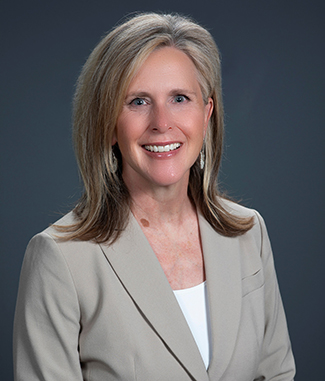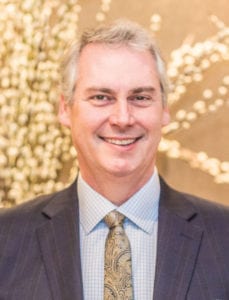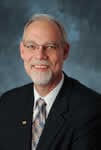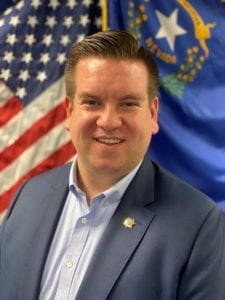- The Issues
- Our Work
- Get Involved
- Data
Safety Summit Sessions
Welcome

Kristina Swallow, Director, Nevada Department of Transportation
Director Kristina Swallow was appointed by Governor Steve Sisolak in January of 2019 as Director of the Nevada Department of Transportation.
With more than 25 years of experience in engineering, public policy, and community advocacy, as a practicing civil engineer, Kristina has worked in several technical areas including flood control, traffic impact analysis and mitigation, land development, public works, and transportation policy. A thought-leader, Kristina artfully blends her breadth of experience and ability to communicate the concerns-at-hand to achieve the goals of the greater good. She strongly believes the key to successful transportation systems lies in the strength of the plan.
View Full Schedule
COVID-19: Exposing Road Safety Challenges
News reports are full of anecdotal reports of how the pandemic has affected traffic safety. While we don’t know the full scope of the effects now, the crisis has shown a bright light on big unsolved challenges that have long festered on our roads from speeding to impairment.

David Harkey, President, Insurance Institute for Highway Safety (IIHS) and Highway Loss Data Institute (HLDI)
David L. Harkey is president of the IIHS and the HLDI.
Before taking the helm at IIHS-HLDI in 2018, Dr. Harkey, an engineer by training, led the University of North Carolina Highway Safety Research Center for 11 years. There he directed numerous projects to develop tools and strategies for enhanced safety analysis, improve safety data for researchers and decision makers, and develop training materials for safety practitioners.
Dr. Harkey’s own research has focused on improving roadway design and operations for all users, including motorists, pedestrians and bicyclists. He has led major research programs and projects for the Federal Highway Administration, National Highway Traffic Safety Administration and other public agencies throughout his career and published numerous technical reports and peer-reviewed articles on road safety.
Dr. Harkey received a doctorate in civil engineering from North Carolina State University and a master’s degree and bachelor’s degree in civil engineering from the University of North Carolina at Charlotte. He is actively involved in several professional organizations, including the Transportation Research Board and the Institute for Transportation Engineers.
View Full Schedule
Priorities for Traffic Safety in Nevada Community Leaders Panel Discussion
Hear from Community Leaders from across Nevada about the top traffic safety issues in their communities and how their agency is working to improve traffic safety. Please bring questions for the Q&A with the Panelists.
Commissioner Michael Naft, Clark County
Major James Simpson, Nevada Highway Patrol Northern Command
Bill Thomas, Executive Director, Regional Transportation Commission of Washoe County
Sean Robinson, Traffic Safety Project Manager, City of Las Vegas
Captain Dan Bledsoe and Lt. Greg Munson, Las Vegas Metropolitan Police Department
View Full Schedule
The Why, What, and Who of the Safe Systems Approach

Robert Wunderlich, Director Center for Transportation Safety at Texas Transportation Institute, will present on the Safe System approach to reducing serious injuries and fatalities on roadways. Recognizing that humans are going to make mistakes, a Safe System reduces opportunities for mistakes and mitigates consequences. He highlights the various aspects of the Safe System, including roadway design that reduces user error and lowers impact forces, and explains what transportation professionals can do to help implement a Safe System approach for all users.
Robert Wunderlich, P.E., Texas A&M Transportation Institute
Robert Wunderlich has been named the acting director for the Center for Transportation Safety at the Texas Transportation Institute (TTI), a member of the Texas A&M University System. Wunderlich, formerly served as the City of Garland’s senior managing director for transportation, streets, engineering and stormwater, also holds the title of research engineer since he assumed his new duties on July 9.
Wunderlich is responsible for leading the various research programs for the center, which was established by the Texas Legislature in 2001. He is also responsible for promoting the center’s work to all of its internal and external stakeholder groups.
“We are extremely pleased that Robert is joining TTI,” says Bill Stockton, executive associate agency director. “His outstanding reputation and real-world experiences make him an ideal addition to our strong team. We are enthusiastic about the unique attributes that Robert brings to the Institute and look forward to a long and valuable relationship with him.”
Source: Texas A&M Transportation Institute
View Full Schedule
Traffic Safety Communications – How One Conversation Can Save a Life
With roadway fatalities heading in the wrong direction, it is up to all of us currently working in traffic safety to take every opportunity to save a life, and that might simply start with a conversation. Whether it’s an opportunity to give a presentation, something as simple as a tweet, or a conversation in passing at a grocery store, it is up to all of us to make an everlasting impact on the traveling public. Working together, we can find a collective tone to express a sense of urgency that lives are on the line. Learn more about how the State of Nevada is eliminating fatalities on Nevada’s roadways through our communication efforts and how you can help.

Andrew Bennett, Public Information Officer, Office of Traffic Safety
Andrew Bennett is the Public Information Officer for the Office of Traffic Safety. Prior to his time with the Office of Traffic Safety, he has passionately been working towards the goal of Zero Fatalities in the State of Nevada for the last eight years with several different traffic safety organizations. His first-hand knowledge of education, enforcement, emergency management, and engineering is exemplified in the relationships he has established at all community levels, from students and educators to first responders and elected officials.
View Full Schedule

